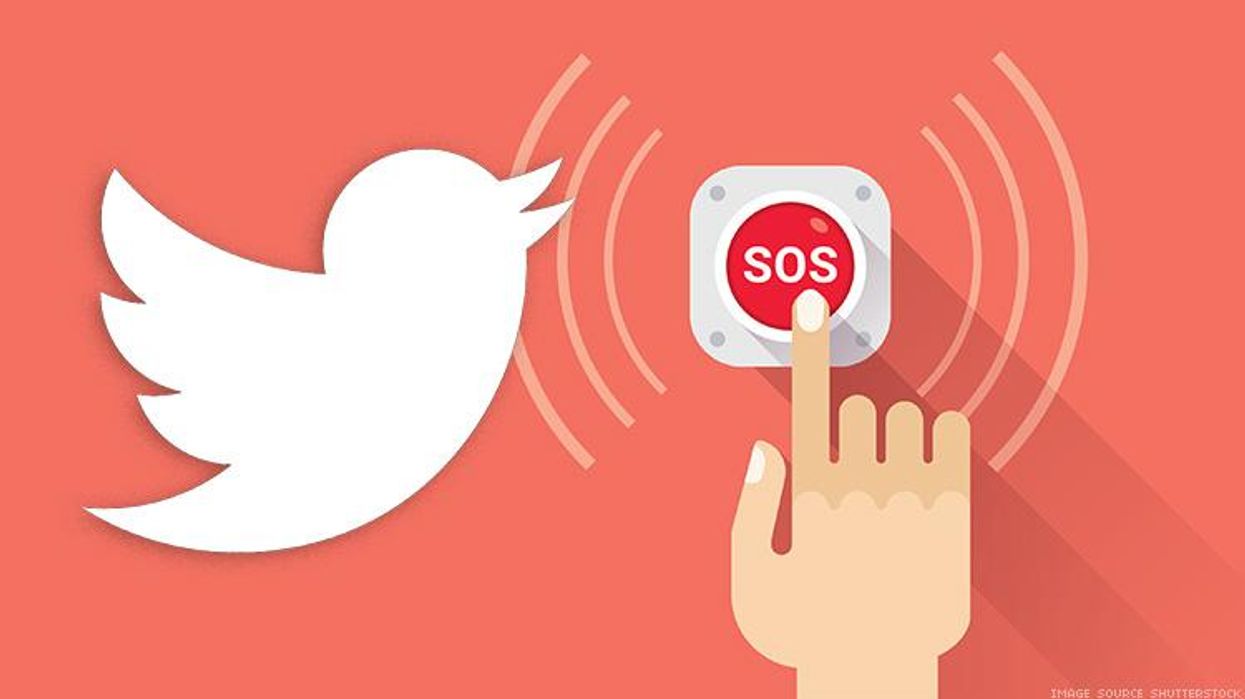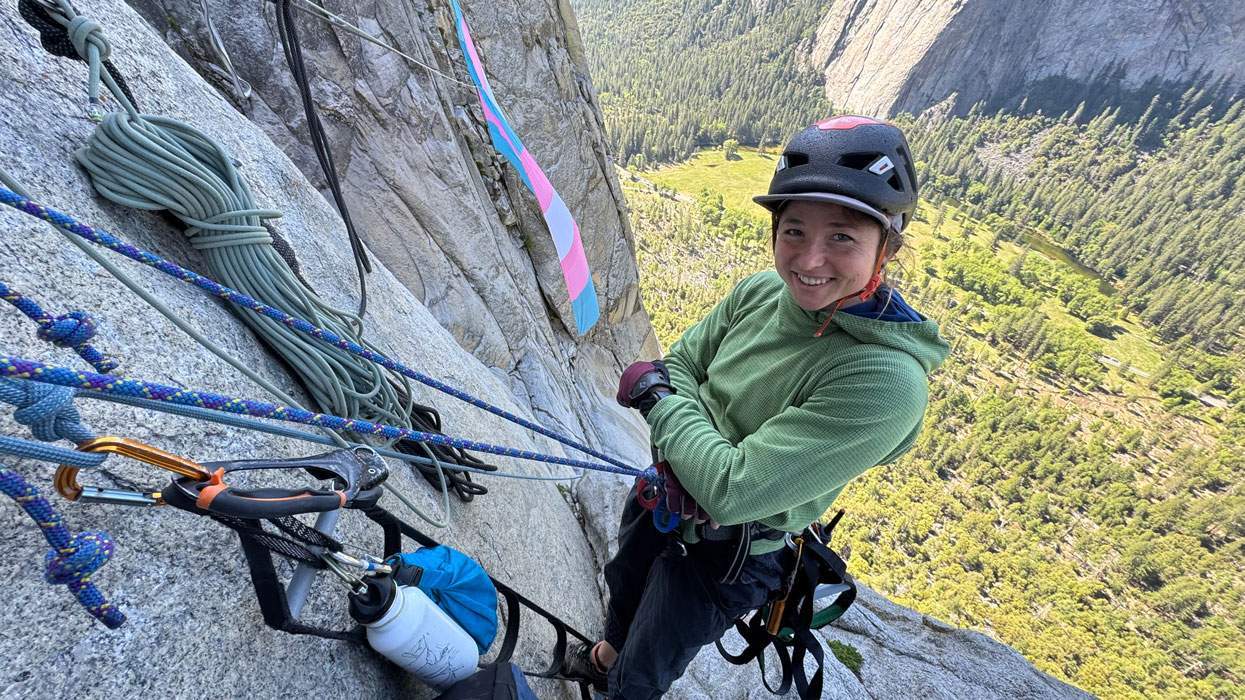On Monday night, queer-beloved rapper CupcakKe alarmed her followers by posting a message across her social platforms in which she announced that she intended to take her own life. "[I'm] about to commit suicide," she wrote on Twitter. She also posted a screenshot of the tweet on Instagram with the caption, "thank you for everything y'all have done for me I really appreciate it."
Hours later, BBC later reported that CupcakKe was safe and in the hospital, where she'd been brought for "mental evaluation."
Messages of love and support began pouring in from fans, friends, and celebrities immediately after CupcakKe's initial tweet. "Are you ok?!" asked Lizzo in a tweet. "Please someone update us. You're so loved by so many people. [You] give me life, if you need anything I got you." Charli XCX, who has collaborated with CupcakKe on both of her mixtapes, tweeted that the rapper "taught me and so many others so much about being ourselves, embracing exactly who we are and being proud of where we come from."
CupcakKe's messages, and the panic that followed them, raise an interesting question: in the age of social media, how do we help someone when they express suicidal thoughts or intent online, especially when some feel that calling the police can potentially escalate the situation? Out reached out to The Trevor Project and spoke with Senior Crisis Services Manager Paloma Woo about what friends, family, and fans can do to support and protect CupcakKe and others dealing with suicidal thoughts or intentions.
If you see that someone has posted suicidal thoughts online, but they haven't escalated to intent yet, what first steps can you take to help them?
If you see that a friend is feeling hopeless or alone, reach out to them privately by calling or texting them, and, if at all possible, a face-to-face conversation is best. Check in with them about what's on their mind, and actively listen with an empathetic ear. If it isn't someone you know personally, replying with a message of support can be uplifting and letting them know they are loved and not alone. It can also be important to let them know of available suicide prevention services, whether that be The Trevor Project or another service.
If you see that someone has expressed suicidal intent online, what can you do to help them?
If someone expresses suicidal intent online, still try to reach out to them personally. You can ask them how they feel, if they've made a suicide plan, and if they have the means for suicide. If you reach out to the authorities for help, they will dispatch a team to their location and assess their need for medical care or further treatment.
If the person is in crisis relating to their sexual orientation or gender identity, but not out to their friends and family, it's really important not to share any information with others that could potentially out them or exacerbate their crisis.
Many social media sites have a way to flag concerning content, and this can be another vital step to connect the person to care.
In what situation, if any, should you call 911?
Calling 911 can save someone's life, and it's often the fastest way to get someone the professional care that they need and deserve. If you suspect that someone is in immediate danger of ending their life, if they're in the process of attempting suicide, or if you're not sure, it's best to reach out to their local emergency services.
You may not have all the information that the dispatcher will ask you, but it's important to share what you know about what they shared online and any identifying information that you may have.
Some people fear that calling the police could potentially escalate the situation, is that something to be cautious about?
While emergency services provide life-saving support, there are also considerations for marginalized populations, including those who identify with the trans community and persons of color. Contacting emergency services is not something to be taken likely, but if you are concerned about someone posting about ending their life, reaching out to local emergency services can be a life-saving step, as they are properly trained to assess and facilitate the care of a person considering suicide or in crisis. Emergency services personnel can also connect them with medical professionals who can provide the help they may need.
What are some important things that people who have never experienced suicidal thoughts need to know?
If you've never experienced suicidal thoughts, it's important to know that a variety of factors can contribute to suicide beyond mental health conditions alone, including relationships, substance use, physical health, employment or financial stress, and legal problems. Suicidal thoughts and feelings exist on a spectrum, with many people experiencing suicidal thoughts at some point in their life. It can be really hard to talk about suicide, and the pervasive stigma around the subject can only compound someone's feelings of isolation and lack of self-worth.
What are misconceptions about suicide that we need to end?
Suicide is the second leading cause of death among young people, and the risk for suicide is higher for LGBTQ youth. It's important to note, however, LGBTQ people aren't at a higher risk for attempting suicide because of their sexual orientation or gender identity; it is because of harmful public and systemic rhetoric that they hear and rejection that they experience from friends and family, which can make them feel that their life is worth less than their straight or cisgender peers.
In the specific instance of a public figure expressing suicidal thoughts/intentions, what can their fans do to best support them?
Sending messages of support can help public figures know that they are loved, valued, and never alone.
If you or someone you know is feeling hopeless or suicidal, contact The Trevor Project's TrevorLifeline 24/7/365 at 1-866-488-7386. Counseling is also available via chat from 3pm - 10pm EST/12pm - 7pm PST every day at TheTrevorProject.org/Help, or by texting 678-678 from Monday - Friday, 3pm - 10pm EST/12pm - 7pm PST.






























